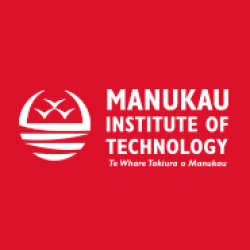
OLA: A Vocational Training Model that Supports Learners in New Zealand Workplaces
Status
Completed: 30 July 2019
Project Details
A 2-year project to collate and share information on a proven integrated vocational training model that has successfully met the training needs of diverse groups or learners and employers. A collaboration of QED Associates, Manukau Institute of Technology and Alkimi Consulting.
Aims:
The main aims of the project were to:
- develop a benchmarking resource and evaluation tool
- provide a training resource to better meet the vocational training needs of providers in the Pacific or other student groups and employers training and working in NZ.
Methodology:
The project used a mixed methods approach involving:
- data analysis from previous research-based projects conducted in NZ, Samoa and Tonga
- development and trialling of training packages, benchmark resource and measurement tools
- conducting an information collection exercise with stakeholder feedback used to measure how the training model could be used and or developed to contribute to meeting industry and training needs of different groups of earners and employers.
Research question:
- How effective is the OLA Training Model in meeting the needs of Industry and learners?
Team
Christine Newland
Project Leader
Alkimi Consulting
Pieter Watson
QED Associates
Graeme McClennan
Manukau Institute of TechnoloyStatus
Funding
$20,000.00 (excl GST)
Key Findings
The project plan involves the following key phases:
- Phase 1: Completion of summary of findings: The initial phase of the OLA project commenced on October 1st 2017. The collation of findings from the previous projects has commenced with key themes and principles already evident. The methodical evaluation built into previous iterations of OLA means there is a substantial body of information to be interrogated.
- Phase 2: Completion of training package: A training package will be developed using an evaluation process that is based on identified best practice. The intention is for this to be applicable broadly to include many possible training environments and subject areas but also to include a self-explanatory framework and methodology, based on the principles of the OLA development.
- Phases 3 and 4: Completion of stakeholder feedback report and Completion of pilots: These phases have been designed to provide evidence of the usefulness of the training package and effectiveness of the OLA training model.
- Emerging issues, highlights and challenges: It is anticipated that the main challenge the project will face will be in effectively project managing the project. A major part of the ‘unknowns’ is how complicated the synthesis will be after what is years of effective trial and analysis.
Key Recommendations
This report consists of the summary of findings from the previous projects, a draft OLA training package, a summary of stakeholder feedback and consequent changes to the model and the results following the completion of two pilot programmes.
(PDF, 1.6 MB, 69-pages)
- 30 July 2019
The purpose of this manual is to resource managers, lecturers and administrators to deliver OLA as part of Floristry training at MIT. It includes the gap analysis findings that were based on best practices identified through OLA Tikanga.
(PDF, 478 KB, 41-pages)
- 30 July 2019